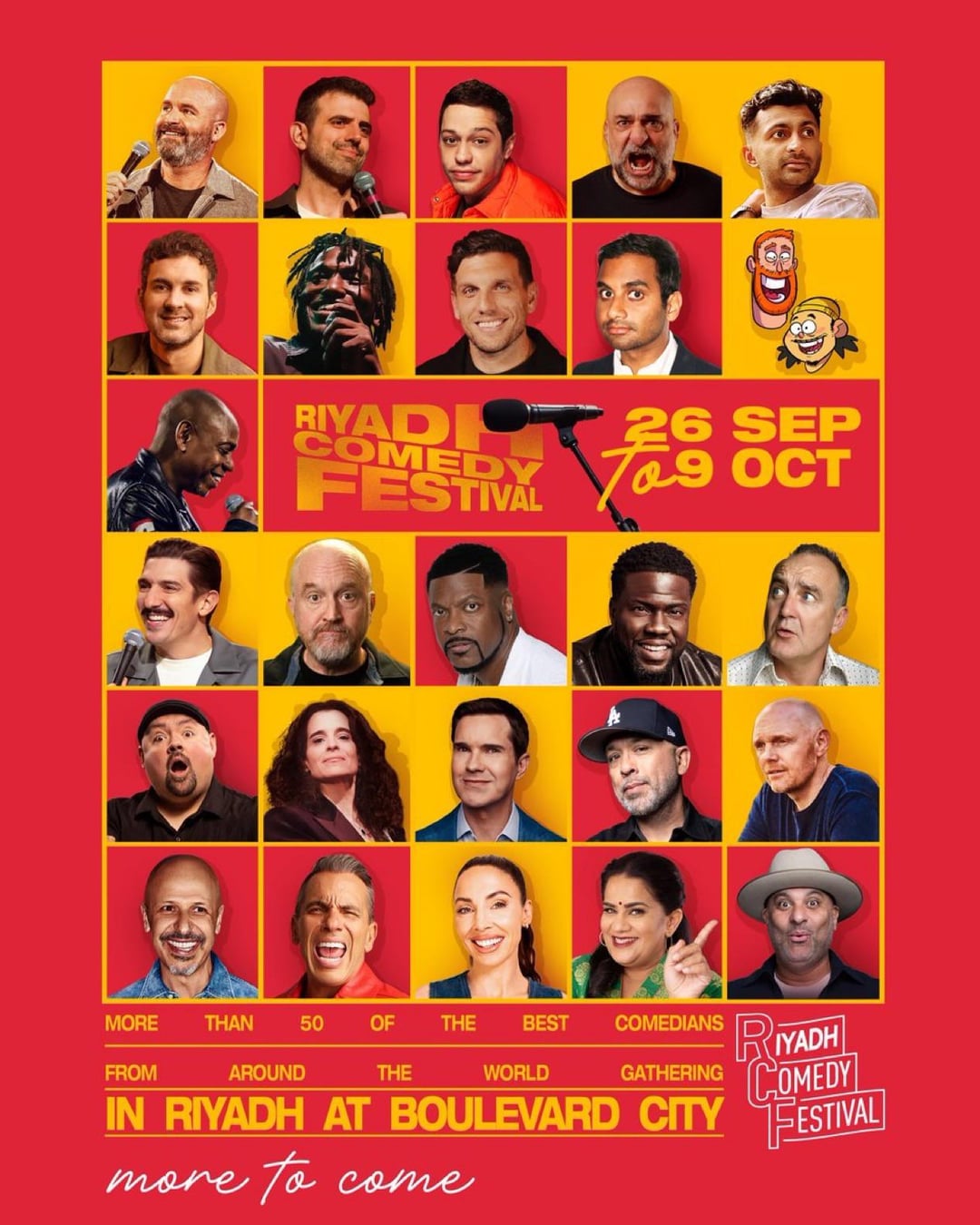# Riyadh Comedy Festival: A Balancing Act Between Laughter and Human Rights
The Riyadh Comedy Festival, slated for September 26th to October 9th, 2025, promises to be the “world’s largest comedy festival.” But its star-studded lineup, featuring renowned American comedians like Dave Chappelle, Kevin Hart, and Bill Burr, alongside other international talent, has ignited a fierce debate about the ethical implications of participating in events hosted by Saudi Arabia.
## Saudi Arabia’s Image and Human Rights Abuses
Saudi Arabia has aggressively invested billions in high-profile entertainment events, from sporting leagues to massive concerts. Critics argue this is a calculated attempt to improve its international image, overshadowing its concerning human rights record. This strategy, often termed “sportswashing” or “cultural washing,” aims to distract global attention from ongoing human rights violations. Isn’t it troubling that such a significant investment is being made to deflect criticism rather than address the core issues?
Human Rights Watch (HRW) has been particularly vocal in its criticism, expressing deep concerns about the festival’s potential to contribute to this whitewashing effect. Joey Shea, a researcher at HRW, stated that the Saudi government’s investment in these events is a deliberate strategy to distract from the “soaring number of executions” and other abuses within the country. This isn’t just about entertainment; it’s about a powerful nation attempting to reshape its global perception.
### The Case of Turki Al-Jasser: A Journalist’s Execution
The case of journalist Turki Al-Jasser serves as a chilling example of the human cost of Saudi Arabia’s repressive regime. Al-Jasser, who was executed in June 2025 after seven years of detention, was convicted on terrorism charges that Reporters Without Borders (RSF) and UNESCO have denounced as false. His alleged crime? Criticizing the Saudi royal family via anonymous tweets. The fact that this execution received minimal international condemnation underscores the effectiveness of Saudi Arabia’s image-management campaign. How can the world ignore such blatant disregard for freedom of speech?
The execution of Al-Jasser highlights the critical need for accountability and transparency within Saudi Arabia. The international community cannot afford to turn a blind eye to these violations. The very freedom these comedians enjoy is absent for many within Saudi Arabia. This stark contrast should give pause to anyone considering participating in these events.
## Comedians and Complicity: A Moral Dilemma
The participation of prominent American comedians raises serious ethical questions. Are they unwitting participants in a sophisticated PR campaign? Or are they complicit in obscuring human rights abuses for personal financial gain? Reports suggest some comedians are receiving exorbitant fees for their performances, with some reportedly earning up to $1.6 million for a single show. This staggering sum raises questions about the potential influence of money on artists’ willingness to engage in critical discourse.

HRW has called upon these comedians to use their platforms to speak out against the abuses they have witnessed or learned about. The organization suggests that remaining silent amounts to complicity in the Saudi government’s attempts to improve its image. But what if speaking out puts them at risk? Is silence the lesser of two evils, or does speaking out represent the moral imperative?
CBS News reached out to the publicists of several comedians scheduled to perform at the festival, including Bill Burr, Kevin Hart, and Dave Chappelle, but received no comment. This silence only fuels speculation about the influence the substantial financial incentives may have on their willingness to address human rights concerns openly.
The absence of a public statement from these celebrities is deafening. It allows the Saudi government’s carefully crafted narrative to remain unchallenged. This complicity, whether intentional or not, further enables the perpetuation of human rights abuses. Isn’t it time for these performers to consider the implications of their silence?
The Riyadh Comedy Festival represents a complex intersection of entertainment, geopolitics, and human rights. It throws into sharp relief the difficult ethical choices faced by artists operating in the globalized world, where economic incentives can clash with moral principles. The festival’s success, however measured, must not come at the expense of fundamental human rights. The international community needs to hold Saudi Arabia accountable for its human rights record, and artists who participate in these events should not remain silent accomplices.
The ongoing controversy surrounding the Riyadh Comedy Festival necessitates a critical examination of the power dynamics at play. Will these high-profile comedians prioritize their personal gain over speaking truth to power? Only time will tell.